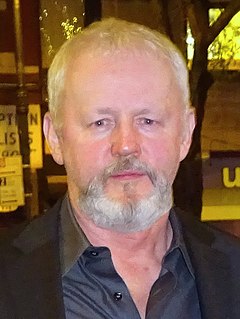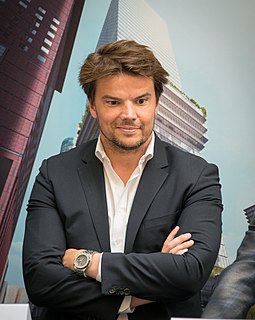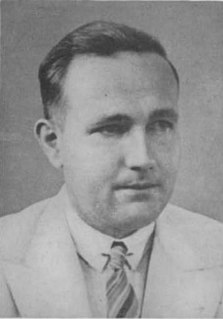A Quote by Ralph Waldo Emerson
We learn geology the morning after the earthquake.
Quote Topics
Related Quotes
I was awakened by a tremendous earthquake, and though I hadn ever before enjoyed a storm of this sort, the strange thrilling motion could not be mistaken, and I ran out of my cabin, both glad and frightened, shouting, "A noble earthquake! A noble earthquake" feeling sure I was going to learn something.
There is this split between the Haiti of before the earthquake and the Haiti of after the earthquake. So when I'm writing anything set in Haiti now, whether fiction or nonfiction, always in the back of my mind is how people, including some of my own family members, have been affected not just by history and by the present but also by the earthquake.
Language is such a powerful thing. After the earthquake, I went to Haiti and people were talking about how [they] described this feeling of going through an earthquake. People really didn't have the vocabulary - before we had hurricanes. I'd talk with people and they'd say, "We have to name it; it has to have a name."
The impact of the earthquake on mental health was huge and unimaginably deep in people's lives. Some lost all benchmarks and references because of their great loss, we still have people coming to clinics with mental health problems related to the earthquake. They talk about the earthquake, about being under the rubble.
I may have been 15 or 16 years old when, on a Sunday morning, I was sitting at home together with my mother and sister, and the floor began to move under us. The hanging lamp swayed. It was very strange. My father came into the room. "It was an earthquake," he said. The center had evidently been at a considerable distance, for the movements felt slow and not shaky. In spite of a great deal of effort, an accurate epicenter was never found. This was my only experience with an earthquake until I became a seismologist 20 years later.
There's only one thing I love more than race day: the morning after! The morning after the Marathon, New York catches running fever. The Hudson River bike path on Manhattan's west side was like a traffic jam of joggers on Monday morning. No doubt the great race fires up the endurance athlete in all of us - and it's beautiful.








































